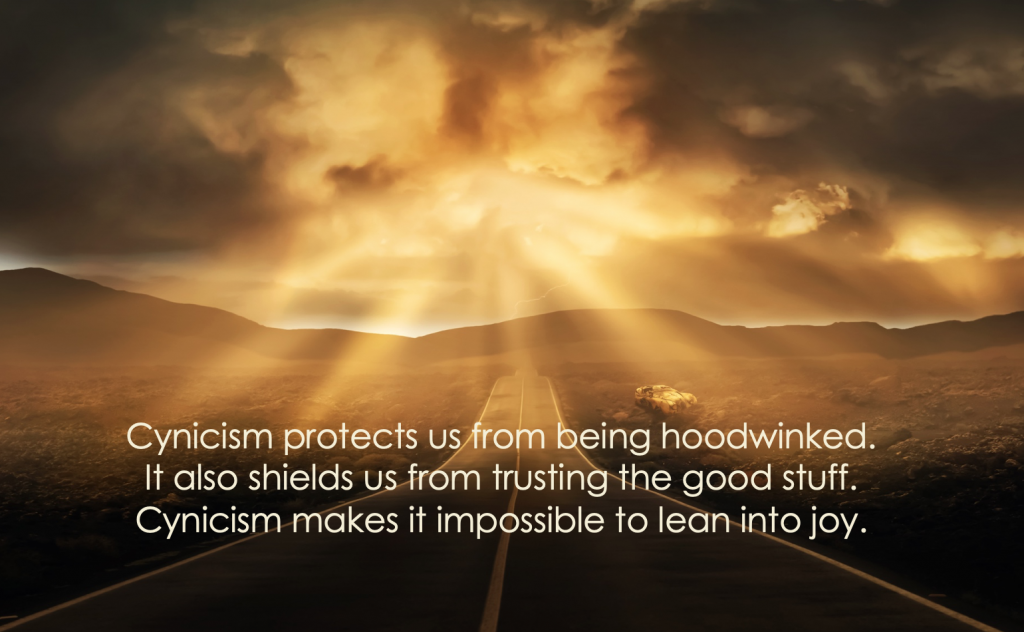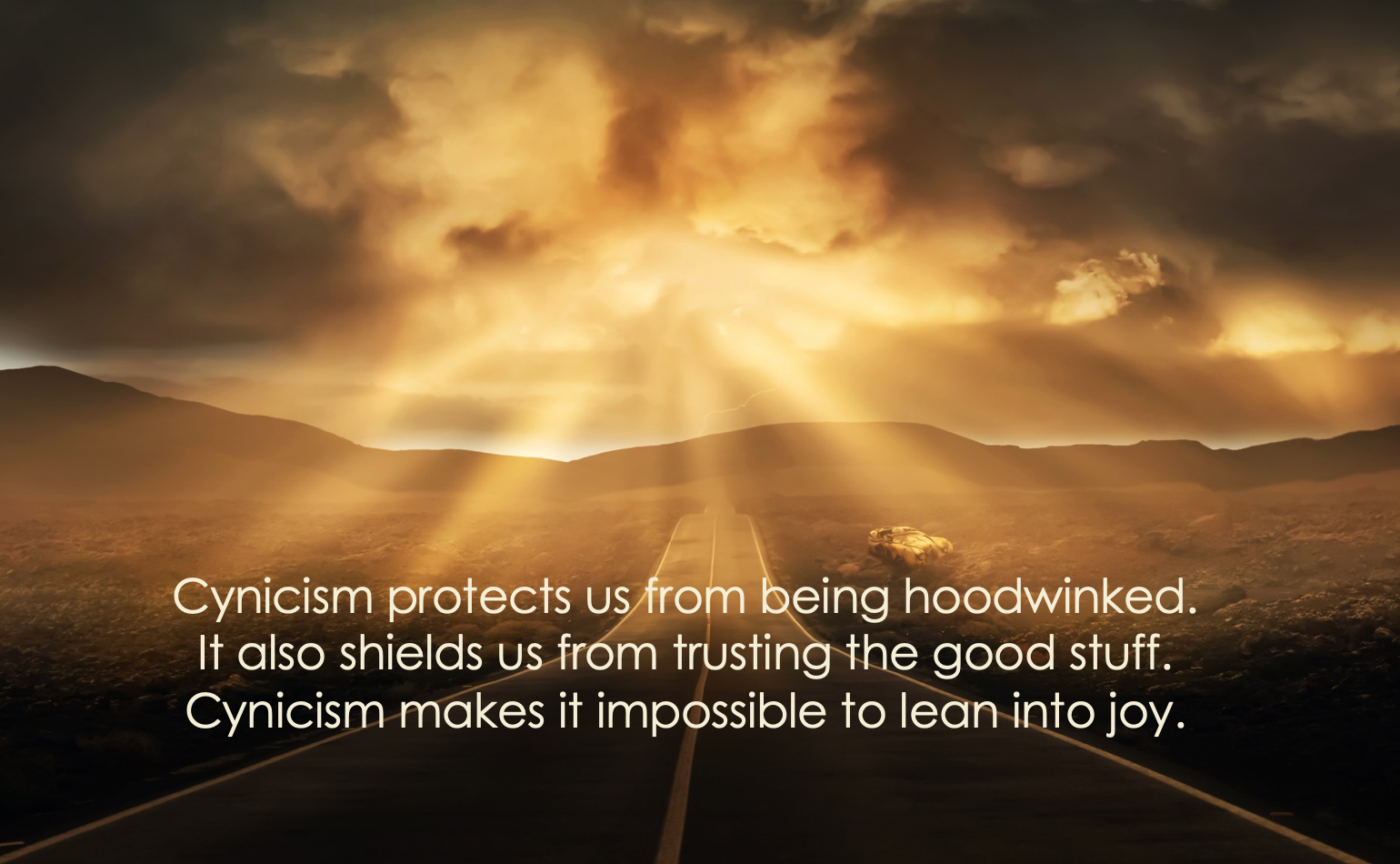We’ve all heard:
Fool me once, shame on you
Fool me twice, shame on me
It’s vulnerable to feel compassion and care towards people who you find out later apparently were the ones who did the damage themselves. When there are mixed stories, and we don’t know who to believe, it gets even more confusing.
When you feel compassion towards someone as a victim and find out later they are accused of being the perpetrator, the natural response is anger. We feel like we’ve been hoodwinked, made a fool of. Our caring and compassion feels misused.
We feel manipulated.
No one likes to feel manipulated.
That’s when a protective part of each one of us wants to armour up and say: “Not again. No one is going to take advantage of my feelings. No one is going to put me in a position to feel this foolish.” And without realizing it, we become cynical and skeptical.
Cynicism is self-protection.
Cynicism is a way to disengage from the pain of the world to avoid our own further pain.
Cynicism reduces our own sense of vulnerability.
But cynicism isn’t selective.
Being skeptical prevents us from being hurt…and it also prevents us from connecting to the world’s struggles and joys.
When we are cynical—we protect ourselves from the discomfort of this feeling that we have around Bermax coffee shop crime. Cynicism also distances us from the good stuff—we look at people skeptically who are being silly, we start to doubt when people affirm us. Cynicism protects us from harm…it’s also shields us from trusting the goodness of life, and it becomes difficult to lean into joy.

Cynicism will stop us from contributing to making the world a better place. It has us doubt someone else’s expression of pain the next time, and we are less likely to speak up against evil.
I tell you, it’s risky for all of us to care the next time someone says something about a hate crime, or anti-Semitism, or homophobia…for sure…but the risk of not caring, I think, is even higher. I get that we need to be discerning and thoughtful, but I’m hoping that we will be able to push through the natural initial reflex of cynicism and choose the risk of caring.
Not caring is no way to live.
The radical thing, as each of us feels the very natural, automatic pull to being skeptical and cynical, is to choose trust. Would you be willing to be taken advantage of again, if it meant staying open to love, joy, and belonging?
Let’s get radical—let’s continue to believe that when someone tells us something incredibly unjust and horrible, they mean it.
We may occasionally be wrong—and that will sting. For sure.







Write a Comment